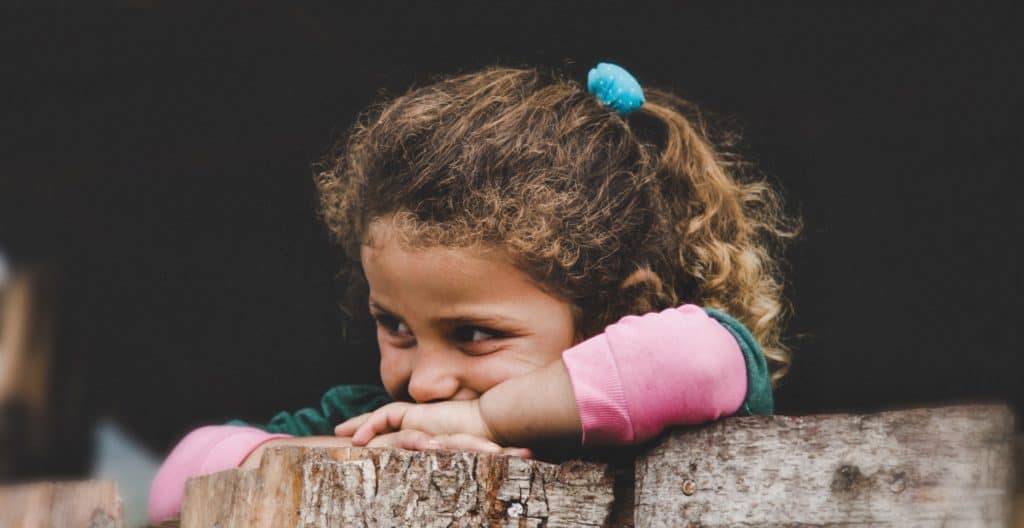
14 Jun Is Your Child Shy?
Most shy children grow up to be socially functional adults who are able to speak up in meetings or give presentations, but during their formative years, these activities may be quite painful for shy kids.
It is important to distinguish what we mean when we talk about shyness. It is probably a commonplace distinction for most of us to be able to label our friends, co-workers, and children as either exuberant and outgoing or shy and reserved, but what might be going on inside the mind and body-state of the shy individual?
According to psychologists and social researchers, shyness (on the other end of the spectrum from exuberant) has to do with social inhibition. That fancy phrase means that kids may experience stress when faced with interacting with peers or adults in social or education environments, or pretty much any environment as a shy person can attest.
Shyness (social inhibition) therefore is different from being introverted.
Introverted kids may be quite content to pursue individual tasks and not crave social interaction. Shy kids may in fact desire to spend time with their peers, but feel socially uncomfortable in doing so.
What’s the big deal about shyness then? Is it a problem? Shy kids are at greater risk of experiencing social anxiety as they grow into their adolescent and adult years. If the rate of anxious adults in the general population is as high as 10% of people, then shy kids are 3 or 4 times as likely (30-40%) to experience social anxiety later in life.
Some shy kids, as the social pressures mount in middle and high school years, turn to alcohol or substances to help facilitate social interaction. Still, social anxiety can be overcome…there is a myriad of skills and cognitive-behavioral of help available (yes, we can help with that). Most shy kids learn to regulate the stress involved with social situations.
The news isn’t’ all bad…
What positive characteristics do shy kids exhibit? Well, for one thing, as a socially inhibited individual, shy kids are much less likely to be risk takers. They are more likely to ‘think before they do’ (look before you leap) rather than leap first and examine the risk after your parents have to take you to the ER for a broken collar bone (insert your own story of risky behavior here). Shy kids may be “more attuned to threats in their environment.” ¹
Parents, this part is for you… how then do we best assist our shy children?
Instinctually, when we see people in stress or pain, we want to comfort and protect. Researchers² say, “The prototypical shy child is timid, with a coy smile,” which is why we often are drawn to shy kids. However, the best way for a shy child to learn to navigate the stress of social interactions, is to be gently supported. If parents can take a step back from rescuing their kids, while being supportive and encouraging, their children will begin to take steps to do things on their own. Are you debating whether to keep your shy preschooler home? It may be better in the long-run if your child attends daycare and learns to interact with their peers. Those children are less anxious than shy kids who stay home with a parent or nanny.
It is important to remember not to label our children’s temperament as bad or negative. There is plenty of room in the world for slow-to-warm-up kids. They often grow up well adapted and possessing many useful skill sets. Just think about it…if we didn’t have cautious thinkers, how would we have come up with all this research in the first place?
Written by Tim Doty, Psy.D.
REFERENCES
1 Robert J. Coplan as quoted in Weir, K (2014) Born bashful: Psychologists have new insights into the causes and effects of childhood shyness. Monitor on Psychology 45 (10), p.50. (http://www.apa.org/monitor/2014/11/bashful.aspx)
2 Dr. K. Perez-Edgar, also quoted in the same Monitor article
FURTHER READING
Wolfe, C.D., Zhang, J., Kim-Spoon, J., & Bell, M.A. (2014) A longitudinal perspective on the association between cognition and temperamental shyness International Journal of Behavioral Development doi:10.1177/0165025413516257
Pérez-Edgar, K., Reeb-Sutherland, B. C., McDermott, J. M., White, L. K., Henderson, H. A., Degnan, K. A., … Fox, N. A. (2011). Attention Biases to Threat Link Behavioral Inhibition to Social Withdrawal over Time in Very Young Children. Journal of Abnormal Child Psychology, 39(6), 885–895. doi:10.1007/s10802-011-9495-5
Cain, S. (2013) Quiet: The Power of introverts in a world that can’t stop talking. Broadway Books.


